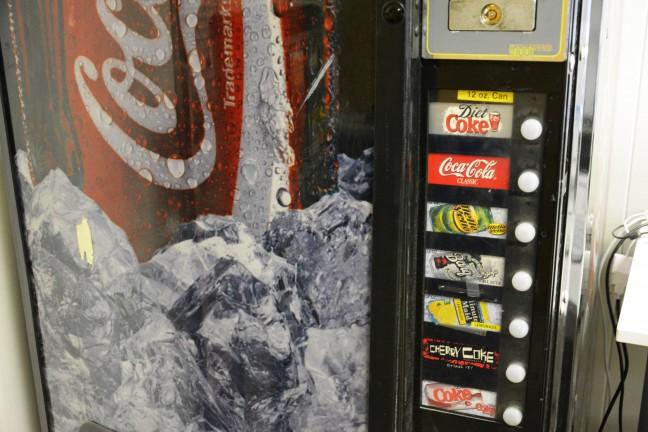No soda allowed for University of Wisconsin Health– well, sort of.
UW Health will fully implement a ban on the sale of sugary beverages, including soda, sweetened juices, energy drinks and sweetened teas and coffees at UW Hospital and Clinics, American Family Children’s Hospital and UW Medical Foundation buildings by the end of the year.
However, although cafeterias, vending machines, inpatient catering and administrative offices will no longer provide sweetened beverages for sale, employees and patients are still permitted to carry in their beverages of choice, UW Health Dietitian Cassie Vanderwall said.
The ban is part of an effort to encourage healthier lifestyle choices by making it easier for them to make the right nutritional choices while on UW Health’s campuses.
“As an institution that provides medical and health care, we want to create an environment that helps to empower and enable our patients, our families and our employees to make the healthy decisions that we are encouraging,” Vanderwall said.
UW Health officials first began considering changes to their beverage offerings two years ago upon reviewing the practices of health institutions across the nation. Earlier this year officials decided to go forward with the proposal after conducting a survey, and realizing that the institution’s goal of offering a 60 to 40 percent ratio of healthy to non-healthy beverages was not being met, Vanderwall said.
“In the last three months, we drafted a timeline for the phase in and phase out of sugar sweetened beverages with healthier alternatives,” Vanderwall said. “If we were taking away a sweet tea, we wanted to provide a tea that was also sweet in flavor or infused with a non-nutritive sweetener … that would not be linked to poor health outcomes.”
UW Health does not expect the ban on sweetened beverages to reduce revenue, Vanderwall said. To encourage clientele to purchase the new, healthier beverages offered, UW Health has decided to subsidize its healthier products, especially the 60 percent of items that exceed the guidelines of the “My Smart Choice” campaign that UW Health uses, Vanderwall said.
The initial reaction of clientele to the new changes has been largely positive, although some have complained about the newfound lack of offerings, Vanderwall said.
In light of UW Health’s ban on the sales of sugary beverages, officials at university dining halls are seeking to also provide healthy options for students, but do not see themselves following the measures taken at UW Health, according to Julie Luke, the associate director of Dining and Culinary Services for university housing.
At university dining halls, an array of options are offered, but instead of banning unhealthy items, they emphasize the placement of healthy options, such as the salad bar and milk, in heavier traffic areas to encourage their sale, Luke said.
Because of the significant profit margin made on sodas, Luke said the university residence halls will continue to sell them because the revenues can help keep the prices of healthier options low.
“Success is having a dining hall that has the options that students are looking for to best fit their lifestyle,” Luke said. “It is clearly important that we have healthy options. Up to this point in time, we have always had a mix [of options] based on what the residents are looking for, and to have the choices there rather than deliberately engineering the choices for health.”














